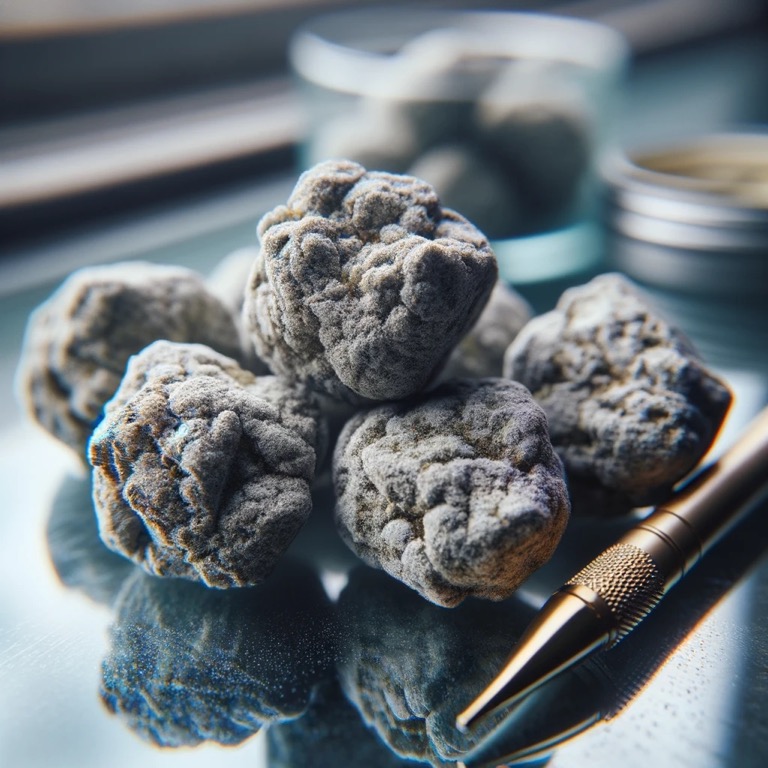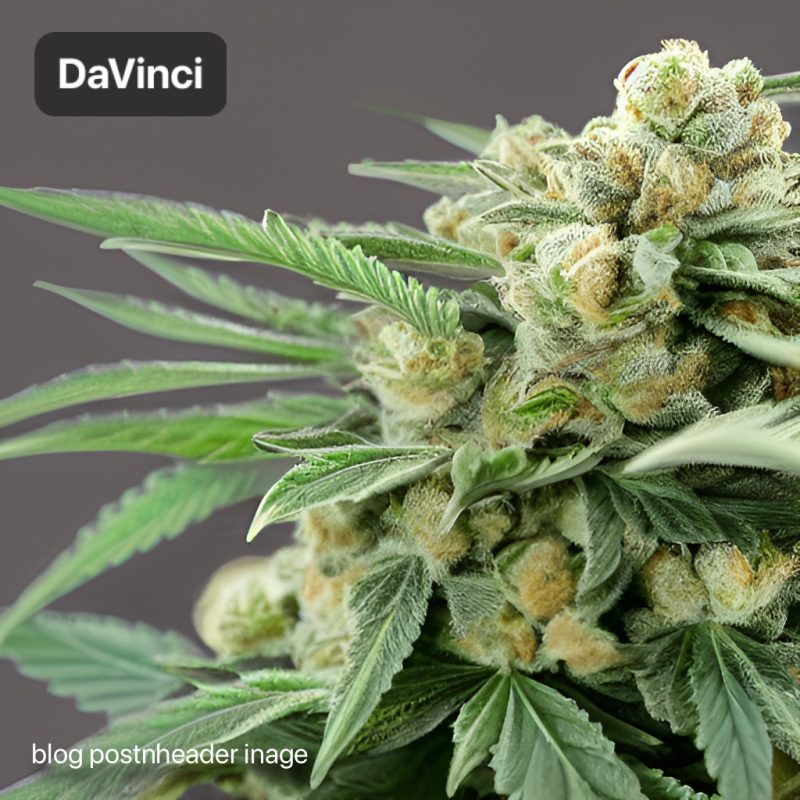THCA FLOWER, FLOWER, Hashish, Legal
What is THCa
Understanding the Benefits and Effects of THCA
THCA, or tetrahydrocannabinolic acid, is a non-psychoactive compound found in raw and live cannabis. As the plant dries, THCA slowly converts into THC, the compound responsible for the euphoric effects associated with marijuana. However, before this conversion occurs, THCA offers a plethora of health benefits that are worth exploring. When you first encounter a cannabis plant, the aroma that fills your nostrils is fresh and earthy, a sensory testament to the plant’s rich chemical profile. Among these chemicals, THCA stands out as a potent and beneficial compound. It’s like a hidden gem, waiting to be discovered and appreciated for its unique properties. THCA is a cannabinoid, a type of compound found in cannabis that interacts with the body’s endocannabinoid system. This system plays a crucial role in regulating various physiological processes, including mood, appetite, sleep, and immune response. THCA, like other cannabinoids, can influence these processes, offering potential therapeutic benefits. One of the most notable benefits of THCA is its anti-inflammatory properties. Inflammation is a natural response of the body to injury or illness, but when it becomes chronic, it can lead to various health problems. THCA can help reduce inflammation, providing relief for conditions such as arthritis, Crohn’s disease, and irritable bowel syndrome. Moreover, THCA has shown promise as a neuroprotective agent. It can protect brain cells from damage, potentially slowing the progression of neurodegenerative diseases like Parkinson’s and Alzheimer’s. Imagine a shield, standing strong against the onslaught of damage, preserving the integrity of the brain cells. That’s the potential power of THCA. In addition to its anti-inflammatory and neuroprotective effects, THCA has demonstrated anti-emetic properties, meaning it can help reduce nausea and vomiting. This could be particularly beneficial for individuals undergoing chemotherapy or other treatments that often cause these side effects. It’s like a soothing hand, gently calming the tumultuous waves of nausea, offering a sense of relief and comfort. Despite these potential benefits, it’s important to note that THCA is not psychoactive, meaning it won’t produce the “high” associated with THC. This makes it a suitable option for those who want to experience the health benefits of cannabis without the psychoactive effects. It’s like enjoying the warmth of the sun without the risk of sunburn. However, the effects of THCA are not fully understood, and more research is needed to confirm its potential benefits and understand its mechanisms of action. It’s like an uncharted territory, full of promise and potential, waiting to be explored and understood. In conclusion, THCA is a fascinating compound with a range of potential health benefits. From its anti-inflammatory and neuroprotective properties to its ability to reduce nausea, THCA offers a unique blend of therapeutic effects. And while it doesn’t produce the psychoactive effects associated with THC, it still holds a significant place in the rich tapestry of cannabis compounds. As research continues to unravel the mysteries of THCA, we can look forward to a deeper understanding of this remarkable compound and its potential contributions to health and wellness.
The Role of THCA in Medical Cannabis

Tetrahydrocannabinolic acid, commonly known as THCA, is a non-psychoactive cannabinoid found in raw and live cannabis. As the plant dries, THCA slowly converts into THC, the compound responsible for the euphoric high associated with cannabis. However, when left in its raw form, THCA offers a myriad of health benefits without the intoxicating effects, making it a promising compound in the realm of medical cannabis. The role of THCA in medical cannabis is gaining recognition due to its potent therapeutic properties. It is a powerful anti-inflammatory agent, which can be beneficial for patients suffering from conditions such as arthritis, lupus, and irritable bowel syndrome. The anti-inflammatory properties of THCA work by inhibiting the production of COX-1 and COX-2 enzymes, which are responsible for inflammation and pain in the body. This makes THCA a potential alternative to traditional non-steroidal anti-inflammatory drugs (NSAIDs), which can have harmful side effects. In addition to its anti-inflammatory properties, THCA has also shown promise as a neuroprotective agent. Preclinical studies suggest that it may help protect brain cells from damage and degeneration, which could be beneficial for conditions such as Alzheimer’s and Parkinson’s disease. The neuroprotective effects of THCA are believed to be due to its ability to modulate key signaling pathways in the brain, although more research is needed to fully understand these mechanisms. THCA also exhibits anti-emetic properties, meaning it can help to reduce nausea and vomiting. This could be particularly beneficial for patients undergoing chemotherapy, who often suffer from severe nausea as a side effect of their treatment. In fact, some studies have found that THCA can be more effective at reducing nausea than THC or CBD, the two most well-known cannabinoids. Furthermore, THCA has been found to have anti-proliferative effects, meaning it can help to inhibit the growth of cancer cells. While research in this area is still in its early stages, preliminary studies suggest that THCA could potentially be used as a complementary therapy in cancer treatment, alongside conventional treatments such as chemotherapy and radiation. Despite the promising therapeutic potential of THCA, it is important to note that most of the research to date has been conducted in preclinical models or in vitro studies. Therefore, more clinical trials in humans are needed to confirm these findings and to determine the optimal dosage and delivery methods for THCA. In conclusion, THCA is a powerful cannabinoid with a wide range of potential therapeutic applications. Its anti-inflammatory, neuroprotective, anti-emetic, and anti-proliferative properties make it a promising compound in the field of medical cannabis. However, more research is needed to fully understand the mechanisms behind these effects and to establish the safety and efficacy of THCA in humans. As our understanding of this compound continues to grow, it is likely that we will see an increasing role for THCA in the future of medical cannabis.
Decoding THCA: The Non-Psychoactive Precursor to THC
THCA, or tetrahydrocannabinolic acid, is a non-psychoactive cannabinoid found in raw and live cannabis. It’s a precursor to the well-known THC, or tetrahydrocannabinol, the psychoactive compound that gives marijuana its characteristic high. As the cannabis plant matures, THCA slowly converts into THC, a process that accelerates under heat in a transformation known as decarboxylation. However, before this transformation occurs, THCA possesses its own unique properties and potential benefits that are worth exploring. Imagine a fresh cannabis bud, vibrant and brimming with life. It’s in this raw state that THCA resides, quietly holding the potential for the more famous THC. Yet, THCA is not merely a stepping stone to THC. It’s a powerful compound in its own right, with a distinct molecular structure that offers a range of potential therapeutic benefits. THCA is a larger molecule than THC, and it’s this size that prevents it from fitting into the body’s cannabinoid receptors in the same way. As a result, THCA doesn’t produce the psychoactive effects associated with THC. Instead, it interacts with the body’s endocannabinoid system in different ways, potentially offering anti-inflammatory, neuroprotective, and anti-emetic effects. The sensory experience of consuming THCA is markedly different from that of THC. Without the psychoactive effects, there’s no high, no alteration of perception or mood. Instead, consuming THCA, often through raw cannabis juice or oil, can be likened to taking a dietary supplement. The taste is fresh and green, a reflection of the living plant from which it comes. Yet, despite its non-psychoactive nature, THCA is not without controversy. Its close relationship with THC means it’s often viewed through the same lens, subject to the same legal restrictions and stigmas. This can make access to THCA challenging, despite its potential therapeutic benefits. However, the tide is slowly turning. As the understanding of cannabinoids expands, so too does the recognition of THCA’s potential. Research into its therapeutic properties is still in the early stages, but preliminary studies suggest promising results. For instance, THCA has shown potential in reducing inflammation, a key factor in many chronic diseases. It’s also shown promise in protecting brain cells, suggesting potential applications in neurodegenerative diseases. Moreover, THCA’s potential extends beyond the realm of health and wellness. It’s also a crucial component in the cannabis cultivation and processing industry. Understanding the conversion process from THCA to THC is vital for growers and processors aiming to produce specific cannabinoid profiles. In the end, THCA is more than just a precursor to THC. It’s a fascinating compound with its own unique properties and potential. As we continue to decode the complexities of the cannabis plant, THCA stands as a testament to the plant’s incredible diversity and potential for therapeutic use. The world of cannabis is vast and complex, with each cannabinoid offering a unique contribution. THCA, with its non-psychoactive nature and potential therapeutic benefits, is a shining example of this diversity. As we continue to explore and understand these compounds, we open the door to new possibilities for health, wellness, and beyond.


